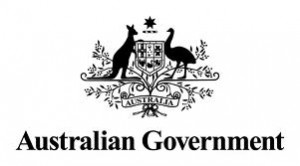
Removing parallel import restrictions would “promote competition and potentially lower prices for consumers”, according to one of the recommendations from the Harper Competition Review Final Report, released last week.
However, the Australian-based manufacturing operations of international branded foods are potentially vulnerable to a flood of imported equivalents turning up in Australian supermarkets.
The review Panel said many of the concerns raised in submissions around relaxing parallel import restrictions — including concerns about consumer safety, counterfeit products and inadequate enforcement — could be “addressed directly through regulation and information. It said the threat of parallel imports “may also induce international suppliers to re-think their regional arrangements”.
What are parallel imports?
Parallel importation of branded products refers to the business of importing into Australia legitimately-produced branded goods (as opposed to counterfeit items) that have been manufactured for an overseas market but are sourced from that overseas market to be imported into Australia. This process bypasses the authorised Australian distributor, and the products are typically bought and sold at a cheaper price than like-branded products specifically designed for and distributed in the Australian market. This is not possible for all products. For example, if Company A owns the rights to a brand in Australia (with exclusive distribution rights) and Company B owns the rights to the brand in another country, and someone wishes to import Company B’s version of the branded product, Company A in various circumstances could be entitled to enforce its exclusive user rights in relation to the trade mark.
According to Australian food law experts and consultants FoodLegal, the market for parallel importation is sometimes referred to as the grey market (as opposed to a black market).
“Parallel importation – although not necessarily illegal –has intellectual property and international trade implications as well as product liability and quality and safety issues to be addressed,” said Joe Lederman, FoodLegal Managing Principal. “Regulators such as the Australian Competition and Consumer Commission (ACCC) take the view that – barring incidents of intellectual property right infringements – parallel importation of certain products offers price competition against the monopolistic channel of an exclusive distribution for the Australian market,” he said.
Parallel import restrictions
In the opinion of many economists, restrictions on parallel import are similar to other import restrictions (such as tariffs) in that they benefit local producers by shielding them from international competition.
The Harper Competition Review Panel said the impact of changing technology and shifting consumer purchasing practices (such as purchasing books online) means that some of these restrictions are easily circumvented.
It said that relaxing parallel import restrictions “should deliver net benefits to the community, provided appropriate regulatory and compliance frameworks and consumer education programs are in place”. The Panel recommended that transitional arrangements should be considered to ensure that affected individuals and businesses are given adequate notice in advance.
Writing in the FoodLegal Bulletin, Mr Lederman said that while the ACCC tended to concentrate on the economist argument that price-driven competition improves Australian efficiencies, the economics did not necessarily consider other Australian Consumer Law implications such as product liability, and quality assurance or fair trading implications.
Furthermore, Mr Lederman said the economists do not necessarily consider the full implications in relation to product reputational protection, food safety protocols or consumers losing out because they were not aware that the product is not the same product as that of the Australian manufacturer. He said this could be detrimental to the manufacturing in Australia of internationally branded products. Importers such as supermarkets would be driven to the opportunity of sourcing similar looking products from lower cost jurisdictions outside Australia.
Traceability and lot identification of parallel imported goods
Parallel importers may sometimes modify the packaging or label of parallel imported goods.
Mr Lederman said this could be a simple case of applying a sticker to the product package, or a complete repackaging.
“The relabelling or repackaging of parallel imported goods also raises other concerns that important safety and traceability information, such as lot identification or date marking (to the extent that date marking can operate as a rudimentary means of product tracing), are being changed or removed in the process,” Mr Lederman said.
Lot identification or batch codes consist of alphanumeric symbols which enable a manufacturer to trace a specific batch of goods and monitor their distribution. In the event of an unsafe foods product being recalled from the market, batch codes can be expected to be relied upon to narrow down the field of product recalls and enhance consumer safety.
“Without accurate batch codes, the whole issue of food safety for all the product range can become a serious food safety concern,” Mr Lederman said.





